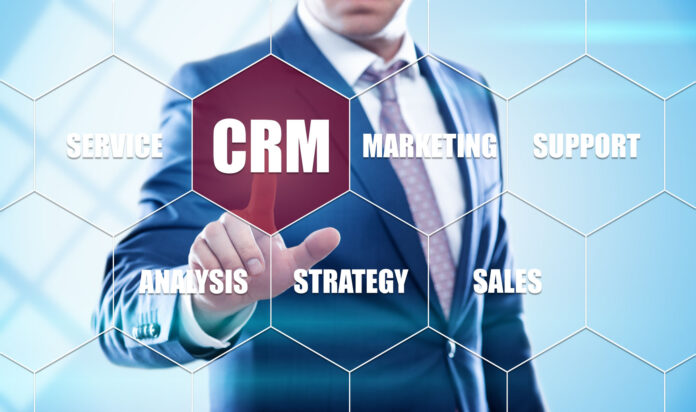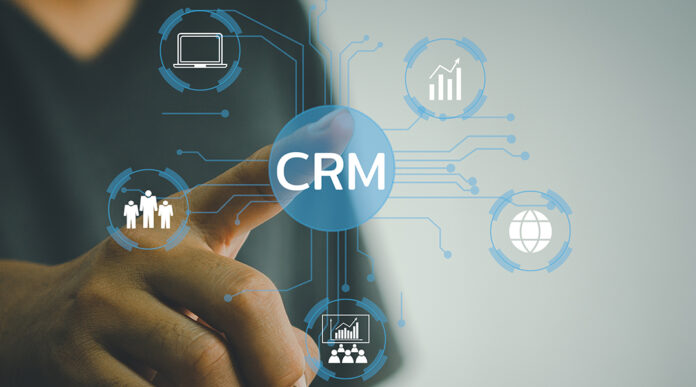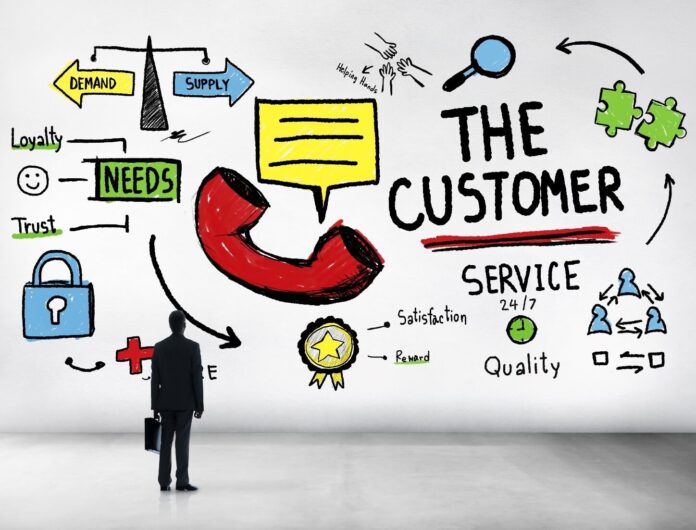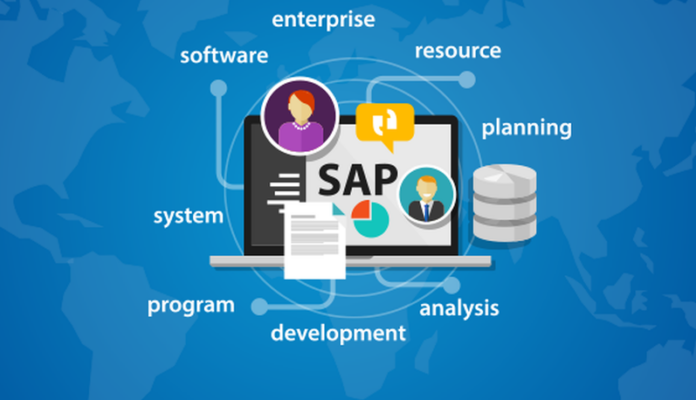
SAP is one of the best-known names in the world of enterprise-level business software. The company’s products offer comprehensive solutions to a wide range of challenges faced by businesses in all sectors. The information below will focus on SAP CRM, in particular, and how this valuable customer relationship management tool can help businesses succeed.
Why CRM Matters

To understand the benefits and importance of key SAP CRM features and functions, business leaders first need to get a grasp on why customer relationship management is so important. In simple terms, CRM helps organizations leverage data to build lasting relationships with and maximize the lifetime value of its customers.
CRM software brings that data together, analyzing it and generating reports that can be accessed through one easy-to-use interface. A well-designed CRM solution like SAP’s offers:
- Precise Reporting
- Clear visualization of data
- Personalized messaging
- Simplified collaboration
- Opportunities for more proactive service
- Lead identification and categorization
- And more
Now, let’s take a look at how SAP CRM, in particular, fulfills all of these goals.
Key Features and Functions
Modern CRM platforms are divided into different modules for easier use, but keep in mind that key data is shared across all of them to avoid silos and increase workflow efficiency. The key functions fulfilled by SAP CRM include the following.
Salesforce Automation

Salesforce automation records processes, tracks interactions, and generates reports for human sales personnel. The module also analyzes sales forecasts and the performance of the workforce to identify ways to increase efficiency.
Human Resource Management
SAP CRM’s HRM module also automates repetitive tasks. In this case, the focus is on helping HR departments find the time to manage talent and become more strategic in their approach to human resource planning.
Lead Management
The lead management module of SAP CRM allows sales and marketing teams to design custom forms, finalize customer lists, and manage campaigns for lead generation. The module uses data from existing and potential customers’ purchase patterns to maximize lead conversion rates.
Customer Service

Customer service efforts must involve members of not just customer relations but also sales and marketing teams. This CRM tool makes collaboration easier, providing optimal solutions for resolving individual issues and general pain points while also building customer trust.
Marketing Tools
Customer relationships start well before people purchase their first products. Marketing departments also play an essential role in creating positive customer experiences. CRM tools like list, activity, campaign, call, and document management are all designed to make their jobs easier.
Business Reporting
Company leaders need insight into the working of every department. Accurate business reporting helps them monitor the company’s progress at a general level. Business reports also help to save costs, improve efficiency, and forecast demand at the departmental level.
Data Analytics

Data analytics is one of the most important components of SAP CRM. This module allows users to gather meaningful insights and then presents the accumulated results of analyzing all of the data visually in ways that are easy to understand.
Integration with Other SAP Solutions

SAP CRM offers integration with other SAP solutions, which can significantly enhance its capabilities and efficiency. These integrations enable organizations to streamline their business processes, reduce manual efforts, and improve data consistency across different systems.
SAP ERP Integration
According to technologyevaluation.com, one of the key integrations for SAP CRM is with SAP ERP. This integration allows organizations to synchronize customer data, sales orders, and service requests between the two systems With this integration, customer service representatives can access real-time information on sales orders and product availability, enabling them to provide accurate information to customers. The integration also allows sales representatives to create sales orders and quotes within SAP CRM, which are then automatically replicated in SAP ERP, eliminating the need for manual data entry.
SAP BW/BI Integration
Another important integration for SAP CRM is with SAP Business Warehouse (BW) and Business Intelligence (BI). This integration enables organizations to analyze customer data from SAP CRM in conjunction with data from other SAP applications, providing a holistic view of their business. The integration allows for advanced analytics and reporting capabilities, such as predictive analytics and dashboards, which can help organizations gain insights into their customer behavior and preferences.
Benefits of Integration with other SAP Solutions
The integration of SAP CRM with other SAP solutions can provide numerous benefits to organizations. First, it can help streamline business processes, reducing manual efforts and enabling employees to focus on more strategic tasks. Second, it can improve data consistency across different systems, ensuring that all employees have access to the same information. Finally, it can provide advanced analytics and reporting capabilities, enabling organizations to gain insights into their business and make more informed decisions.
Benefits of Unlocking the Potential of SAP CRM

Unlocking the potential of SAP CRM can provide numerous benefits to organizations, ranging from improved customer engagement to streamlined business processes. Here are some of the key benefits of unlocking the potential of SAP CRM:
Improved Customer Engagement
SAP CRM provides a range of features and functions that can help organizations improve their customer engagement. For example, the platform offers multi-channel customer engagement capabilities, enabling organizations to interact with customers via their preferred channel, such as email, phone, or social media. SAP CRM also provides social media engagement features, allowing organizations to monitor and respond to customer feedback on social media platforms. By leveraging these capabilities, organizations can improve their customer satisfaction and loyalty, resulting in increased revenue and profitability.
Enhanced Customer Experience
SAP CRM can also help organizations enhance their customer experience by providing personalized, relevant, and timely interactions. For instance, the platform offers customer segmentation capabilities, enabling organizations to group customers based on their demographic, behavioral, and transactional data. By doing so, organizations can deliver targeted marketing campaigns, personalized product recommendations, and customized pricing and promotions. SAP CRM also offers service management features, allowing organizations to track and resolve customer issues quickly and efficiently. By delivering a superior customer experience, organizations can differentiate themselves from their competitors and build long-term relationships with their customers.
Increased Sales Revenue
SAP CRM can also help organizations increase their sales revenue by enabling them to identify and pursue profitable opportunities. The platform offers sales management features, such as opportunity and account management, enabling organizations to track their sales pipeline and prioritize their sales activities. SAP CRM also provides marketing automation capabilities, such as lead management and campaign management, allowing organizations to generate and nurture leads more effectively. By leveraging these capabilities, organizations can increase their sales conversion rates and win more business.
Streamlined Business Processes
Finally, SAP CRM can help organizations streamline their business processes, reducing manual efforts and improving data consistency. For example, the platform offers integration with other SAP solutions, such as SAP ERP and SAP BW/BI, enabling organizations to synchronize customer data, sales orders, and service requests between different systems. SAP CRM also provides reporting and analytics features, allowing organizations to monitor their performance and identify areas for improvement. By streamlining their business processes, organizations can reduce costs, improve efficiency, and achieve better outcomes.
Why SAP CRM?

Customer relationship management is one of the most essential aspects of running any manufacturing or distribution business, but SAP CRM doesn’t just provide specialized tools for these industries. Companies working in health care, consumer services, retail, and other sectors will also find everything they need to improve both workflow efficiency and customer satisfaction. Plus, the program can be fully integrated with SAP’s other advanced business software solutions.











